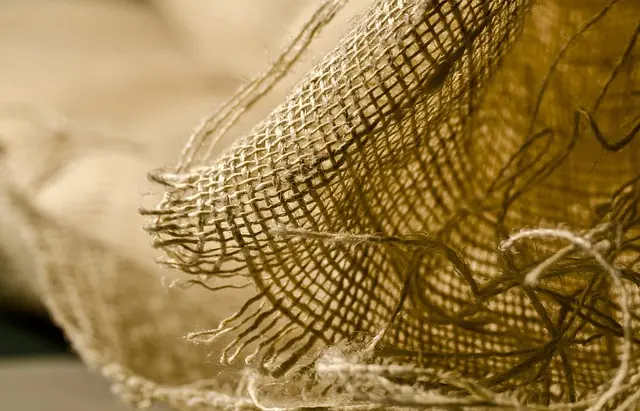Muscle soreness from intense exercise or physical work can be alleviated by consuming kratom tea, a traditional remedy from Southeast Asia. Kratom contains active alkaloids like mitragynine and 7-hydroxymitragynine that may interact with opioid receptors to provide pain relief. To prepare kratom tea, one must first dry the leaves before simmering them in water for 20-30 minutes. After straining, the tea can be consumed, but it's important to start with a low dose to gauge individual responses and avoid adverse effects. While kratom offers potential benefits for muscle soreness and well-being, it's essential to consult healthcare professionals before use due to possible interactions with other medications or health conditions. The article provides detailed steps on making kratom tea, including selecting high-quality kratom powder from reputable sources, adjusting dosages based on personal experience, avoiding clumping by stirring gently, allowing the mixture to steep for optimal compound infusion, and customizing taste with natural sweeteners. It also reminds readers of the importance of adhering to local regulations regarding kratom use and emphasizes the need for professional medical advice when incorporating kratom tea into a muscle soreness treatment regimen. This guide aims to help individuals understand the 'kratom tea how to make' process, ensuring they can safely explore its potential benefits for managing post-exercise discomfort.
Muscle soreness can be a persistent and debilitating issue for many, often resulting from intense physical activity or certain health conditions. Exploring natural remedies, interest in kratom has grown as a potential aid for muscle relief. This article delves into the intersection of muscle soreness and kratom’s therapeutic properties. We will explore the science behind muscle discomfort and how kratom might offer relief, followed by a detailed guide on crafting kratom tea—a soothing brew that many find effective for alleviating pain. Whether you’re an athlete or someone seeking natural alternatives for pain management, understanding the ‘kratom tea how to make’ process is key to harnessing its potential benefits. Join us as we navigate the relationship between muscle soreness and kratom’s unique role in providing relief.
- Understanding Muscle Soreness and Kratom's Role
- Crafting Kratom Tea for Muscle Soreness Relief: A Step-by-Step Guide
Understanding Muscle Soreness and Kratom's Role

Muscle soreness can arise from various activities, including intense exercise, physical labor, or even from repetitive motions over prolonged periods. This discomfort is often a result of micro-tears in the muscle fibers, which, as part of the body’s natural healing process, repair themselves to become stronger. However, the pain can be a hindrance to daily activities and hinder progress in fitness regimens or work efficiency. Kratom, a plant native to Southeast Asia, has been traditionally used for its potential health benefits, one of which includes muscle relaxation and pain relief. Mitragyna speciosa, the scientific name for kratom, contains alkaloids that may interact with the body’s opioid receptors, offering analgesic effects. These effects are thought to contribute to its use as a natural remedy for muscle soreness.
For those interested in experimenting with kratom tea how to make, it is important to note the correct preparation to maximize its benefits. The leaves of the kratom plant can be brewed into a tea by first drying them and then boiling them in water. The resulting liquid should be simmered slowly for a period that allows the active compounds to infuse into the water. Typically, this process takes around 20-30 minutes. After straining the leaves out, the remaining tea can be consumed. It is recommended to start with a small dose to assess individual sensitivity and to avoid overconsumption, which could lead to adverse effects. The analgesic properties of kratom tea are often attributed to alkaloids like mitragynine and 7-hydroxymitragynine, which may help alleviate muscle soreness and promote a sense of well-being. As with any remedy, it is advisable to consult healthcare professionals before incorporating kratom into one’s regimen, especially for those with pre-existing health conditions or who are taking other medications.
Crafting Kratom Tea for Muscle Soreness Relief: A Step-by-Step Guide

Crafting kratom tea as a remedy for muscle soreness involves careful preparation and attention to detail to ensure both safety and efficacy. Kratom, derived from the leaves of the Mitragyna speciosa tree, contains alkaloids that are believed by some to provide natural pain relief. To brew this herbal concoction, begin by sourcing high-quality kratom powder from a reputable vendor. Measure one to two teaspoons of the powder for every eight ounces of water, depending on your desired strength and tolerance level; it’s crucial to start with a lower dose if you’re new to kratom use.
Boil the designated amount of water and allow it to cool slightly before adding the measured kratom powder. Stir the mixture gently to prevent clumping, then cover and let it steep for approximately 10 to 15 minutes. The steeping process allows the active compounds in the kratom to infuse into the water, enhancing the tea’s potential therapeutic effects for muscle soreness relief. After steeping, strain the tea through a fine sieve or cheesecloth into a clean mug. Taste may vary; you can adjust sweetness with natural sweeteners if desired. It’s recommended to drink the kratom tea slowly, allowing your body to absorb the effects. Remember to adhere to local laws and regulations regarding kratom use, and consult with a healthcare provider before incorporating kratom tea into your muscle soreness relief regimen.
Muscle soreness can be a significant disruption to one’s daily activities and overall well-being. The article has explored the mechanisms behind muscle soreness and how kratom, particularly through the preparation of kratom tea, may offer relief. By following the detailed step-by-step guide for crafting kratom tea, individuals can potentially alleviate discomfort associated with muscle soreness. It’s clear that incorporating kratom tea into one’s regimen might be a beneficial addition for those seeking natural alternatives to manage pain. For those interested in exploring this remedy, it is advisable to consult with healthcare professionals to ensure safe and effective use.






